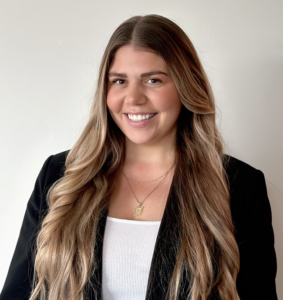First Nations lawyer named as a Rising Star by Toronto Life magazine

By Sam Laskaris
CHIPPEWAS OF RAMA FIRST NATION – Stephanie Willsey already has numerous accomplishments in her legal career, but it’s believed the Chippewas of Rama First Nation lawyer also has a rather bright future ahead of her.
In a year-end compilation, the Toronto Life magazine has named Willsey as one of its 25 Rising Stars. The selections are aimed at profiling young individuals who are making an impact within the city.
Willsey, who is 31, is an associate litigator with the Toronto-based firm McCarthy Tétrault. The majority of her cases focus on defending Indigenous rights.
Willsey’s most noteworthy case was winning an $8 billion class-action lawsuit against the federal government on behalf of Indigenous communities that haven’t had access to clean drinking water.
“I really appreciate it,” Willsey said of her Rising Star selection. “It’s so nice to get the recognition. It helps with building my profile.”
Willsey said she’s also hoping the designation will lead to future work for her. Though her law firm is located in Toronto, Willsey primarily works remotely for her home on Chippewas of Rama First Nation.
Willsey, who was called to the bar in 2019, is currently working on several cases. One involves a lawsuit regarding housing deficits on First Nations.
“I think while the water crisis on First Nations is well known to many Canadians, the housing deficits are not,” she said. “They tend to impact more remote First Nations. And so, it’s a little bit further out of sight from the majority of Canadians but essentially, there’s a huge issue when it comes to underfunding housing.”
Willsey added housing in many First Nations is overcrowded and requires major repairs.
“Some of the First Nations that we’re representing have 32 people living in a three-bedroom home,” she said. “The types of conditions they’re living in, it’s an impossible situation to get out of… In most cases, they’re very remote communities where it’s very expensive to bring materials in and very challenging to bring materials in because they’re very often remote, fly-in communities. And it’s just incredibly challenging to get the necessary resources out there.”
Willsey is also working on a child welfare matter on behalf of Manitoba First Nations regarding the collective impacts of the child welfare system on First Nations in the western Canadian province.
She’s also working on a number of other matters regarding implementing and forcing treaty terms. Plus, she’s also involved in a case on behalf of Indigenous and Black individuals in Toronto that have been impacted by carding, the practice where police stop and collect and store personal information.
Willsey is thrilled that her legal work focusses on Indigenous issues.
“That’s exactly why I went to law school,” she said. “I wanted to be able to contribute to a better future for our people and to help serve our people. I know that we can accomplish so much. And I’ve always wanted to use my legal degree to kind of better our people, including my own community… To be able to commit to that every day is really rewarding. And it’s just a great way to spend my career.”

